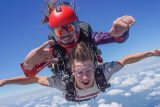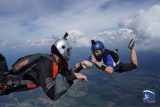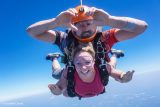Is Skydiving Bad for Your Back?
Skydiving
4 years ago
Skydiving is the original extreme sport, and it is understandable that it might make you think doing it involves all sorts of stresses on your body. Watching people freefall and then deploy a parachute looks like it might be tough on your back, but this is not the case – and while jumping out of airplanes is certainly an active thing to do, it is actually more forgiving than you think. So is skydiving bad for your back? Read on as we discuss.
Your Back Position in Freefall
The first skydiving position people learn is ‘belly flying’ – whereby you fall towards the earth with your belly pointing down at the ground and your head up looking forwards. Arching your body in this position creates stability so you can skydive in control. You can practice this position on the ground by lying on your front, and then arching from the hips to lift everything else up off the floor. You don’t have to arch as hard as you can – just a bit is enough to find the position. On the ground, you will notice that this feels like hard work even holding it for a few seconds, but in the sky, you will find it is actually very comfortable. This is because the ‘relative wind’ created by falling at terminal velocity is a sturdy force pushing up at you – to the point where arching for a whole minute of skydiving is no big deal.
Parachute Deployment and Your Back
Skydiving equipment has evolved over the years to be very good at what it does. A combination of technology and packing techniques mean that parachutes open in stages that decelerate you smoothly from freefall to canopy flight – without jarring or bumping you about much. If you have ever seen a video of people skydiving together until someone deploys in the frame, you can easily be forgiven for thinking that this could be hard on your back – as the deploying jumper is flipped up vertically and then goes zooming off up into the sky to quickly become a little dot. What is actually happening is a gradual deceleration process as the parachute opening stages occur in sequence – and it just looks fast when the camera stays in freefall and drops away.
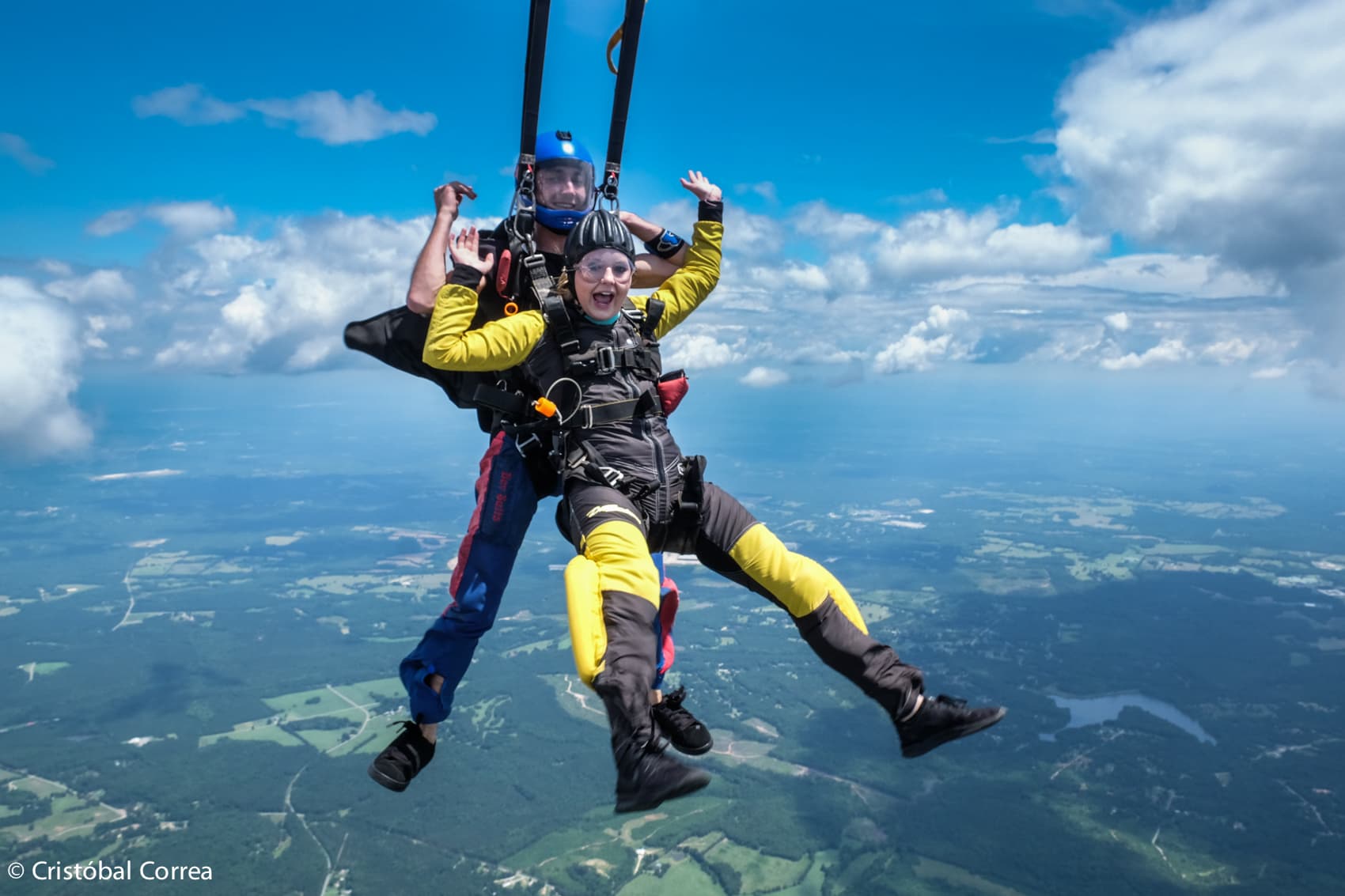
Coming in for Landing
As people get better at flying parachutes, they like to get smaller and faster ones so they can zoom about and look cool – which makes landing them more tricky and increases the chances of landing in a big pile. This is fine if you practice regularly enough, but if you are new to parachuting, are a bit older, or have some sensitive body parts such as your back – then softer options are available. When you are a new skydiving student or doing a tandem jump, the parachute you use is big and friendly. It will open softly and be easy to land – to the point where you just slide in gently on your bum for a tandem skydive or touch down as easily as a single step on your own.
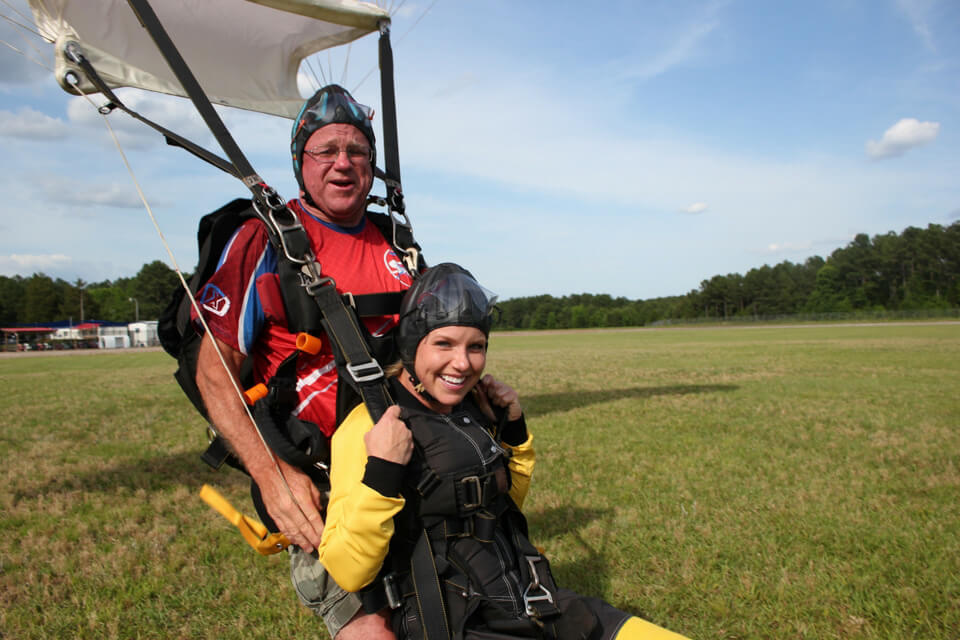
Potential Risks to Your Back in Skydiving
Almost anyone can go skydiving, and it is possible to do many jumps in a day for many days in a row without any unusual strain. Professional skydivers do hundreds and thousands of jumps per year, and if they are doing it properly this is sustainable. There is still some risk involved though, as every now and then a parachute will open a bit harder than usual leaving you a little sore – or you get a landing a little wrong and limp away cursing. It all comes down to proper training and practice. At the very beginning, you will be given all the information you need to get started, and it is entirely possible to skydive for your whole life without it causing any physical problems.
In Conclusion
Even if you have something about your body that gives you pause when considering the idea of leaping out of a plane, do not be dissuaded. Usually, it is possible. However, we are not doctors so the best course of action is to always consult with them first. From there we will be happy to answer any questions you might have. We want everyone to experience the thrill of skydiving, and it is a surprisingly accessible sport. So join us!
